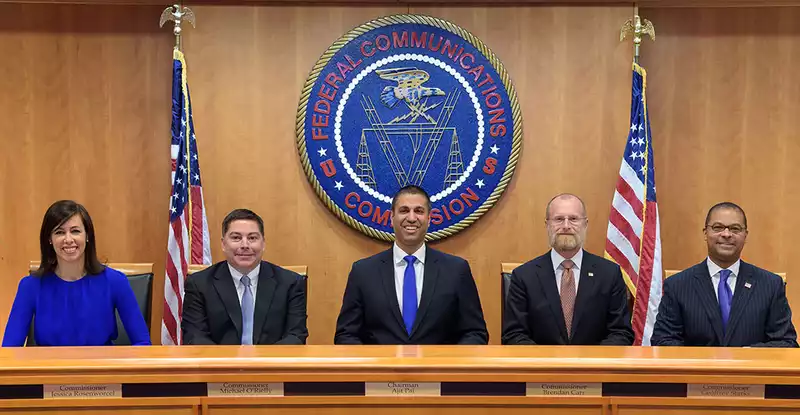Depending on who you ask, the FCC's latest U.S. broadband penetration report is either a "proud" cause for "progress" made in providing more Americans with access to high-speed Internet, or it is "irrelevant to reality" and completely wrong. And that's if you chat with the five members of the FCC's five-member panel.
Opinions fall on both ends of the political spectrum. For better or worse, politics and broadband are intertwined, and the FCC's recently released 2020 Broadband Report (PDF) highlights this inescapable truth. In it, the FCC broadly declares that "the available evidence shows that more Americans than ever before have access to high-speed broadband and that the digital divide continues to narrow"
.
The numbers in the report seemingly bear this out: the FCC defines "fixed broadband" as 25 Mbps downstream/3 Mbps upstream, and according to the report, the number of Americans who cannot access fixed broadband service at these speeds will decline by more than 14% in 2018 and by 2016 decreased by more than 30% between 2016 and 2018.
The report also states that the "vast majority of Americans" (over 85%) have access to 250Mbps/25Mbps service. This does not necessarily mean that they subscribe to those speeds, but they are available, according to the report. The report concludes that broadband penetration is growing "reasonably and timely."
"Under my leadership, the FCC's top priority has been to close the digital divide, and I am proud of the progress made," FCC Chairman Ajit Pai said in a statement (PDF).
As CNET noted, the two Democrats serving as FCC commissioners are at sharp odds with the report's findings and their Republican colleagues on the commission; FCC Commissioner Jessica Rosenworcel has been particularly outspoken on the subject.
"The FCC's rosy view that all is well has nothing to do with reality. Moreover, the FCC's approach leaves much to be desired," Rosenworcel said in an op-ed posted on CNN.
What Rosenworcel takes issue with in the report is the claim that only 18 million people in the U.S. do not have access to broadband service.
"This figure grossly underestimates the extent of the digital divide in this country. This is because if a broadband provider tells the FCC that it serves one customer in one census block, the FCC assumes that the entire service exists. The result, says Rosenworcel, "is systematically exaggerated data for service for the entire country.
Rosenworcel's editorial points to studies that show the actual number of Americans without access to broadband service may be as high as 162 million. She also accused the FCC of ignoring issues such as price and accessibility, and called for the FCC to adjust its definition of broadband, suggesting that 100 Mbps (downstream) be the standard.
It is unfortunate that political affiliation is involved in any of this. Numbers do not lie, but how they are gathered, how they are analyzed, and how they are presented can all be misleading. And depending on who you ask, one or the other is bending the truth.


Comments